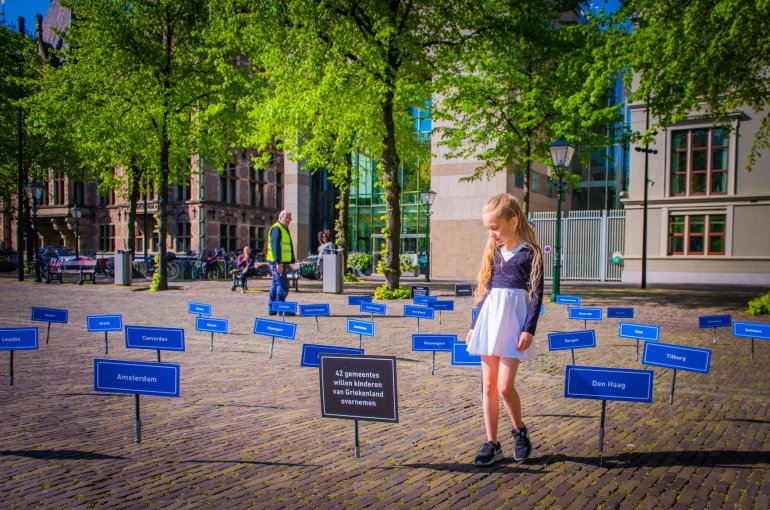Research shows: Three out of four coalition parties differ locally on the vote for providing refuge to refugee children from Greece

In recent months, local factions of CDA, D66 and CU have voted overwhelmingly in favor of motions to provide refuge for 500 unaccompanied refugee children from Greece. This deviates from the Cabinet's position. Researchers from Utrecht University concluded this on the basis of an analysis of all relevant council documents, made available through public council information systems.
In the Netherlands, 119 of the 355 municipalities have now declared their support for the 'Coalition of the Willing'. In 24 municipalities the coalition or the municipal council was not prepared to support the initiative; in the rest of the country the topic has not been placed on the agenda or is still under consideration.
Coalition of the Willing
The coalition was formed following an appeal to municipalities of VluchtelingenWerk Nederland, Defence for Children and Stichting Vluchteling to show their willingness to respond to a request for help from Greece. Greece asked EU member states for help in accommodating 2,500 of 5,000 underage unaccompanied refugees.
Among the 119 municipalities that expressed their support are 68 small, 28 medium and 23 large municipalities. Together they represent a population of over 9 million people.
Party positions inconsistent
It is noteworthy how much the city council is the driving force behind these developments: In 85 cases, the municipal position was the result of a council motion. In 85 cases, the municipal standpoint was the result of a council motion, in which parties opposed to the initiative nationally often voted in favour locally: The CDA in 86 % of the cases, the CU in 93 % and D66 in 100 %. Of the coalition parties, only the local VVD is consistent with the government's position and voted against in 79 % of cases.
Supporters often stress the Greek authorities' cry for help, the humanitarian disaster in the camps and the importance of municipal involvement in international issues. Opponents underline the issue of competence ('we are not in charge of this matter') and the government's intention to strengthen possibilities for guardianship in Greece.
Different stance at local level
According to the researchers of the Cities of Refuge programme, the findings are in line with an international trend.
More and more municipalities across Europe are taking their own stance on global issues such as migration, climate change and polarisation', says Barbara Oomen, Professor of Sociology of Human Rights at University College Roosevelt, UU's Liberal Arts and Sciences College in Middelburg.
On Tuesday June 9th, the Dutch government will vote on a motion to follow other European countries and meet the Greek government's request to relocate underage unaccompanied refugees.
Cities of Refuge programme
How do local authorities deal with refugees? That is the main question in a large NWO VICI study that Prof. Dr. Barbara Oomen carries out together with an interdisciplinary team. Local authorities can play a major role in the refugee issue and do so in very different ways. The Cities of Refuge programme investigates the relevance of international human rights in law, practice and the discourse surrounding the local reception of refugees. Within the Cities of Refuge project, PhD researcher Sara Miellet focuses on Dutch municipalities and local responses to forced migration.

